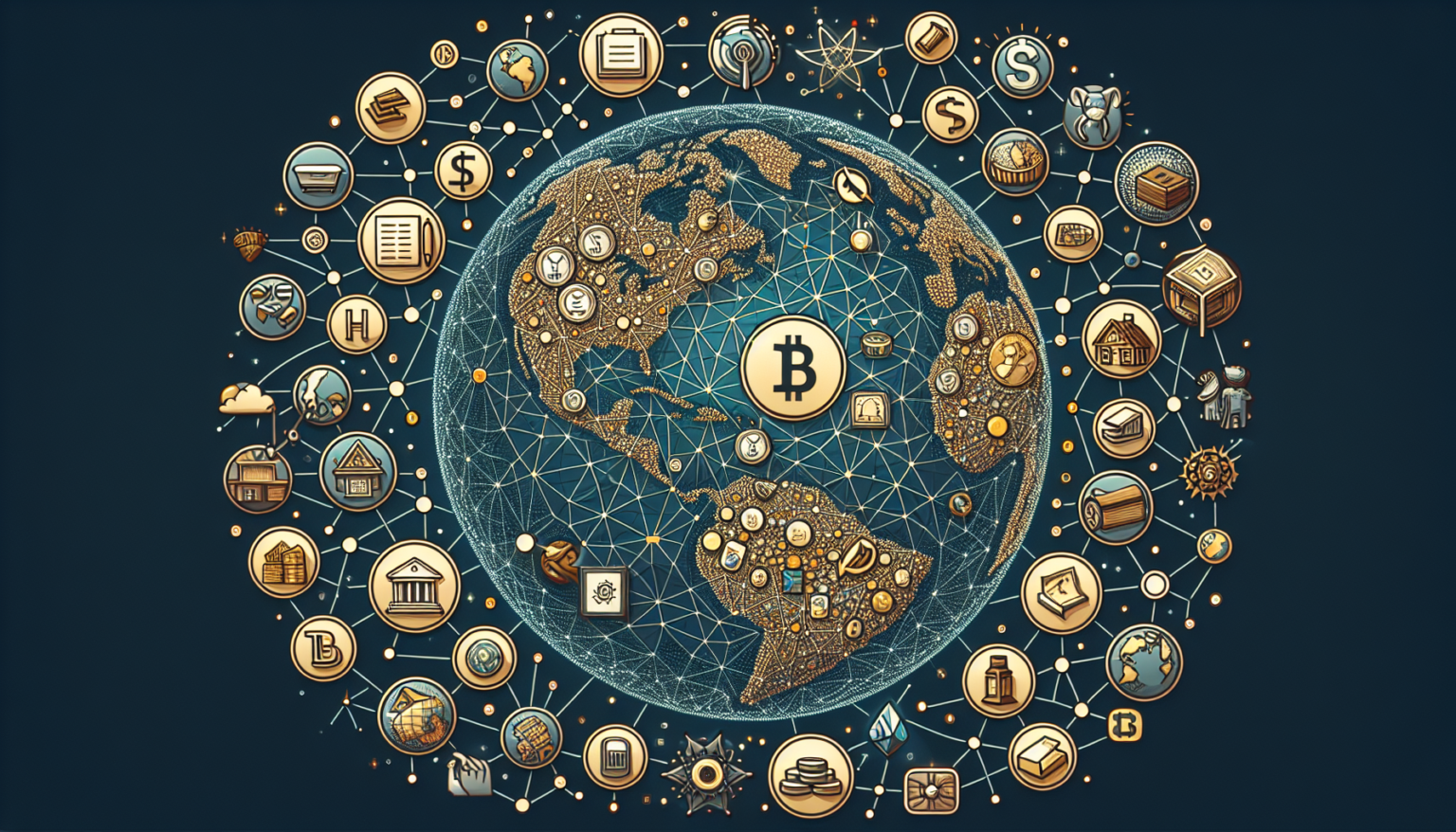The Concept of Tokenization
Understanding Real-World Assets
Real-world assets refer to tangible or intangible goods that hold value in the physical world. These can range from real estate properties, artworks, commodities such as gold, to financial instruments like stocks and bonds. The challenge with traditional ownership of these assets is that transactions are often cumbersome, involve intermediaries, and can be inefficient.
What is Tokenization?
Tokenization is the process of converting ownership of real-world assets into digital tokens that exist on a blockchain. Each token represents a share of the underlying asset. By digitizing these assets, tokenization allows for easy transfer, fractional ownership, and increased liquidity. Essentially, it turns illiquid assets into more liquid investments that can be easily traded on platforms without the need for intermediaries.
The Importance of Decentralized Finance (DeFi)
Decentralized finance (DeFi) refers to a suite of financial services built on blockchain technology, enabling users to access a wide range of financial products without traditional institutions. DeFi eliminates the need for intermediaries, allowing for peer-to-peer transactions and promoting financial inclusivity. The role of DeFi in tokenization cannot be overstated; it opens up numerous opportunities for the trading and management of tokenized assets.
Accessibility and Inclusivity
One of the main benefits of DeFi is accessibility. Traditional financial systems often require significant capital or creditworthiness, limiting access for many individuals. In contrast, DeFi allows anyone with an internet connection to participate in financial markets. By enabling the tokenization of real-world assets, DeFi democratizes access to investments that were previously reserved for the wealthy or institutional investors.
Fractional Ownership and Lower Barriers to Entry
Tokenization, combined with DeFi, allows for fractional ownership. This means that individuals can purchase a small fraction of a high-value asset, such as a piece of real estate or fine art, rather than having to buy the entire asset. This lowers the barriers to entry significantly, allowing a broader audience to invest in diverse assets.
The Mechanism Behind Tokenization and DeFi
Smart Contracts
At the heart of both tokenization and DeFi are smart contracts. Smart contracts are self-executing contracts where the terms of the agreement are directly written into code. They automate processes, ensuring that transactions occur seamlessly without the need for intermediaries. When a real-world asset is tokenized, smart contracts facilitate the transfer of ownership and enforce the rules governing that asset.
How Tokenization Works with Smart Contracts
When an asset is tokenized, a smart contract is deployed on the blockchain. This contract outlines the ownership structure, defining how tokens can be bought, sold, or traded. If someone wants to buy a tokenized asset, they simply interact with the smart contract, which verifies the transaction and transfers the ownership of the token accordingly. This process is fast, secure, and transparent, reducing the chances of fraud and ensuring that all parties adhere to the terms.
Liquidity Pools
Liquidity is another critical aspect of DeFi that enhances the functionality of tokenized assets. Liquidity pools are decentralized pools of assets that facilitate trading on decentralized exchanges. When real-world assets are tokenized, they can be added to these liquidity pools, allowing users to buy and sell tokens quickly. This drastically increases the market’s liquidity and ensures that users can easily enter and exit their positions.
Yield Farming and Staking
Tokenized assets can also be integrated into yield farming and staking mechanisms, where users provide liquidity in exchange for rewards. By staking their tokens, individuals can earn passive income. This dynamic not only encourages users to engage with tokenized assets but also helps create a more robust ecosystem around them.
The Impact of DeFi on Traditional Industries
Real Estate
One of the most promising applications of tokenization through DeFi is in the real estate sector. Traditionally, real estate investments require substantial capital and come with lengthy legal processes. Through tokenization, properties can be divided into smaller shares, allowing multiple investors to own a piece of the property. This model not only democratizes real estate investment but also increases liquidity in a traditionally illiquid market.
The Role of NFTs
Non-fungible tokens (NFTs) have gained significant attention in recent years and play a crucial role in real estate tokenization. Each NFT can represent a unique piece of property, verifying ownership and history securely on the blockchain. This adds an additional layer of transparency and trust, enhancing market confidence.
Commodities and Assets
The tokenization of commodities, such as gold and silver, allows investors to trade these valuable assets with ease. Investors can own fractions of physical commodities without needing to store or manage them physically. This innovation not only enhances liquidity but also allows for more efficient pricing mechanisms, as tokens can be traded 24/7 on various exchanges.
Challenges and Opportunities
Regulatory Environment
While the rise of DeFi and tokenization offers many advantages, it also presents challenges, particularly in the regulatory landscape. Governments worldwide are still grappling with how to regulate these technologies without stifling innovation. Regulatory clarity is crucial for fostering trust among users, and as frameworks evolve, they will dictate how tokenized assets function in the market.
Security Concerns
Another challenge is the security of smart contracts and the platforms hosting these tokenized assets. Hackers have targeted DeFi protocols, resulting in significant losses. Thus, ensuring robust security measures, conducting audits, and maintaining transparency become indispensable in building user confidence.
Future Prospects
The future of decentralized finance and real-world asset tokenization looks promising. As technology evolves and becomes more integrated into our everyday lives, the demand for innovative financial products will grow. The ability to seamlessly trade and manage tokenized assets presents limitless opportunities for investors and service providers.
The Role of Education and Awareness
For DeFi and tokenization to realize their full potential, education becomes critical. Investors must understand the risks and benefits associated with these new technologies. Increased awareness and education can lead to broader adoption, spurring innovation within the space.
In summary, the intersection of decentralized finance and real-world asset tokenization is creating a transformative shift in how value is exchanged and managed. Through increased accessibility, liquidity, and efficiency, these technologies are set to redefine the financial landscape in ways we have only begun to fathom.








